#old norse mythology
Text
i've always really enjoyed movies, tv, and novels of the vikings and one thing that seems to run through all of them is this idea of valhalla (valhol?) as where the “good Vikings” go, who die holding a sword showing honour and bravery in battle, and the rest go to Hel. this seems to cement the perception of a viking worldview that values a good healthy committment to violence and brutality. in contrast to Christianity, where this is opposite – the meek go to heaven and the ones driven by desire and violence go to hell. It feels like the Vikings are both glorified and demonized. they lived during a hard time and a hard place, so a social ethic that values the will to fight makes sense. But it’s good thing now we can be civilized and reasonable.
but since watching vinland saga I’ve been looking a bit more into the easily available research of the actual history/mythology of old norse culture, and the first thing i found was that the underworld for them wasn't this binary that seems to have come from mapping Christianity over old norse beliefs. they didn't have a concept of valhalla as 'viking heaven' where you go if you die valiantly, and if you don't you're doomed to a different, more pitiful afterlife, hel. there were actually many afterlifes in norse belief, different gods had their own halls where they would host the dead. depending on how you died might determine where you went, there was a hall for people who died at sea, or from sickness, or in battle. what I found really interesting was that the goddess hel, who rules over the afterlife also named hel where the supposed unvaliant are consigned to … in the stories i read about her she seemed to have a deep respect and compassion for the dead. she is one of loki's children, who all have monstrous forms of some kind, and half her face/body is like dead flesh, and the other half is living. in the neil gaiman norse myths adaptation she talks about feeling more at home with dead with the living, which i'm not entirely sure if he took some poetic liberties with but it seems in line with what historians describing her as written in the records of the myths say on youtube xP it doesn't seem like this is at all like the christian hell where people who didn't live well are punished for it in the afterlife, or that anyone was punished in the afterlife. it does seem like there are certain dead who live so well they are given special treatment or brought to specific places, but i've come across nothing so far that suggests anyone is damned like in christian belief.
I think this is one way a lot of viking stories depicts the vikings as monstrous and repulsive – that suggests morality is backwards in norse culture, or the inverse of the christian one. The valued people are the most bloodthirsty, and the disgraced ones are the weak, when in christianity the valued are the kind peacekeepers, and the disgraced ones are violent, selfish, etc (in theory). I think stories like the Last Kingdom kind of glorify Vikings, and stories like vinland saga criticize it, but they're each modern projections onto old norse culture to tell a story about modernity that doesn't seem to have to do with what is known about vikings. And personally the actual old norse perception of death and the afterlife that isn't so binaried is so much more interesting to me for the alternative possible ways of seeing the world it imagines than the focus on christianity. And I especially have a bone to pick with Vinland Saga for what it seems to present as the supposed moral option in contrast to the viking way of life.
One thing I always loved about viking culture in all these stories was the way that they lived their lives with a foregrounded consciousness of death. In all these adaptations the viking characters think forward to their death and plan to make sure they go to their death as impressively as possible, with almost an eagerness. Death is a part of their lives and they are not afraid of it but kind of attend to it all their lives as an important act they need to prepare for. They don't seem to fear it or want to avoid it, at least when it is inevitable, I'm sure they're not trying to die sooner than they have to, but they all know they will die and think of how they want to die to make a good show for the gods and please them with their courage. Christians are also concerned with their death but in a different way, where death is the beginning of your possible eternal torment or eternal peace and reprieve from the torment of life (based on my Christian childhood). Humility and submission seems like the dominant approaches in Christianity, and they seem essentially afraid of the world and themselves, hoping they don’t do anything sinful as they wait to die so they can be rewarded in heaven and escape hell. There’s this disassociation from the world they are living in, as they wait, straining toward heaven. Their bodies are the source of sin and it’s like they’re afraid of their own flesh. While for the Vikings through their bodies and their active violence they have power and agency over their experience on the earth and are able to earn a valued place in the afterlife
There’s the part in Vinland Saga I was puzzling over for a long time. The Christian prince Canute of a viking, mostly-pagan but gradually converting to christianity country at this point in the story was travelling kidnapped by a rival viking army. Canute has spent most of his time praying and avoiding warriors but after a sudden series of events declares that he renounces God, and that he will dedicate himself to creating a paradise on Earth. The Vikings and the prince's priest for a few episodes before this had been having a back and forth about Christianity and love. The priest had told the Vikings at one point that what he sought in Christianity that he couldn’t find anywhere else was “love itself”, and the conversations develops from the warriors trying to figure out what he means by “love itself”, love of battle, love of ale and meat, love of a woman, love of your brothers? The priest said that the feeling for all of those things is not real love. A few episodes forward, when the prince is grieving losing someone, the priest told him that even that love he had had with that person was not love. Canute asks him what is love then, and the priest points toward a dead body lying on the ground and says that is love, and cryptically that "death is the completion of a human being".
When Canute says that he will make a paradise on earth he makes a speech as he looks at the beauty of the winter landscape around them and mourns the incongruity of all the dead bodies around them, and says something about the cruelty that the beauty of the natural world doesn’t exist in the souls of human beings and that if god won’t allow human beings to have paradise on earth, he will turn away from god and build paradise on earth himself. I think he’s mourning the disconnection of human beings from the cycles of earth, nature, and the seasons in the world they live in but can't really be a part of, that they seem to be disconnected from the beautiful winter landscape while the land and plants and animals around them have their own processes in rhythm with the seasons and the earth. but human beings are constantly killing each other to try and get the resources they need to survive. If god created the world how can human beings be so out of sync with it?
And I think that is what the priest is seeing – death is a natural part of this cycle that humans avoid but that essentially is what winter is that the rest of nature gives itself to. the dead body decaying into the earth, becoming a part of the cycle of creation and death, part of nature, a part of a process that they are meant to be in as a part of the natural world, is what we are meant for, is what is sacred.
The main idea of the series is that Thorfinn, the main character of vinland saga, a viking warrior who saw his father murdered by a group of vikings he swore revenge on and spent his entire childhood doing nothing but fighting and killing in order to get that, supposedly learns to heal from a life spent pursuing a dead end revenge, violence on top of more violence, when he is forced into a life of farming where he learns to be at peace while working with the land … but the first thing he does for that is spending a whole lot of time ripping up trees from the earth. To me it was just as violent, and just as much a disassociation of human being from the land they live in to forcibly extract resources out of it, dominating it to survive a little longer. The fandom for vinland saga seems to enthusiastically accept this as proof of turning away from revenge and learning to farm as wholesome and healing, but how does it not hurt to watch them rip the trees out of the earth after everything the characters have said about their disconnection from the nature? I honestly couldn't believe what i was watching after all these philosophical epiphanies they were having on the battlefield... it was absurd. "ah yes, i can begin my life of peace and healing, just after I kill an entire forest..." (not to say thorfinn is saying this, and i know his context for doing that is he was forced to follow orders, but the story and the fans definitely seem to position his farming era and nothing but pure goodness and healing, as this act of ripping the trees out as a non-issue..)
Having read a bit about norse culture there’s a LOT of stuff about how they deforested the lands they colonised and a lot of this happened after they were converted to Christianity as well. And this was generally the M.O. of Europeans colonising the world as well and has then permeated to North American culture which was than applied to North American imperialism and globalization and capitalism... Vinland Saga's moral attitude doesn’t feel entirely Christian exactly but if Thorfinn’s journey into Christian-adjacent territory and extractive relationship to land through the kind of farming is his redemption … I just don’t accept that. This type of farming just seems like a different way of expressing the same extractive, violent worldview. (I just read something about how feudal farming, with a land owners and tons of peasants/slaves constantly farming on it is really bad for the soil and causes a lot of environmental damage, btw.)
In pre-christian norse culture I'm learning about ... there seems to be a bit more of a reciprocal relationship to the land? Cultural practices I've read about seems to suggest more of a give and take with the land than seem to be suggested in this anime at least? Of course the norse themselves at varying stages of Christian conversion seemed to go toward completely extractive approach to the land. And there is only records of their life from the time the society was converted to Christianity and writing about the pagan past for fellow Christians so its impossible to say for sure if this is just romanticizing and a longing for a time Western culture wasn't so disassociated from their environment and reality itself... But agh. It makes me sad and I don't think we can just stamp "YAY FARMING!" and consider it all to be fine now.
#vikings#old norse mythology#i just started reading about old norse culture so hopefully there's nothing too off here#vinland saga#the last kingdom
8 notes
·
View notes
Text
Not stonks for Thorkelin
The Germanic Philology Diary, vol. 1
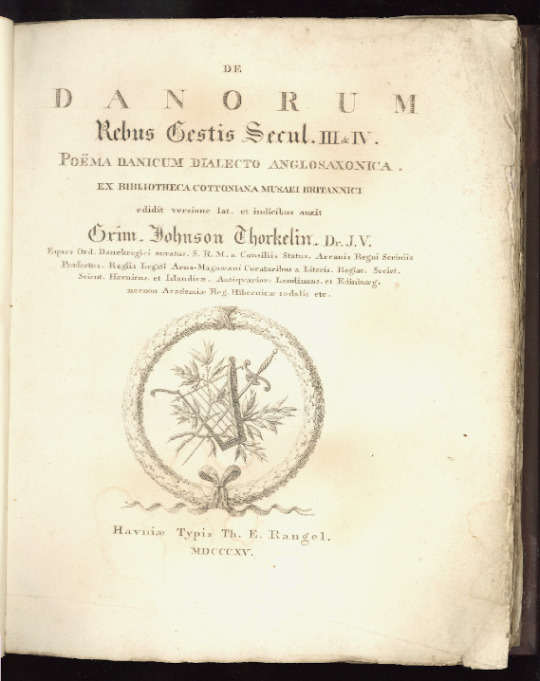
I decided that I would create a little format on this blog. Turns out that I know a shit ton of curiosities and fun facts about history and literature, in particular regarding Germanic Philology — the field that studies Germanic Medieval texts.
Today, while researching for my thesis, I discovered a little story that I thought some of you might like. It's about the first ever Latin translation of Beowulf, aka the Bible of philologists. It's a thrilling, funny but tragic story that involves an Icelandic scholar, bombings and fires.
So, my thesis is on Sir Walter Scott and Old Norse mythology (simplified). While reading some of his letters, I encountered one that he sent to a friend on August 9th, 1810.
These [volumes Scott bought] with some others & with what I had before make me strong in Northern antiquities which the Bombardment of Copenhagen in which Thorkelin's library perishd has renderd scarce.
Apart from the fact that Scott is totally bragging in this passage, my first thought when reading this was "Hold on, Walter...what do you mean with Bombardment of Copenhagen??"
Of course, being the little rat that I am, I had to find out more. Turns out that the British bombarded Copenhagen in 1807, during the Napoleonic Wars. Most of the city was destroyed in the fires that followed.
Grímur Jónsson Thorkelin, an Icelandic scholar, lived in Copenhagen. At this point, he had spent 20 years working on the first ever translation in Latin (and German) of the Old English poem Beowulf. He even lived in England for years in order to study the original manuscript, after the only copy existing of the poem was damaged in a fire a few years before. He was a living legend for scholars of the time.
In his personal library, which contained many Old Norse texts, including sagas, copies of the Eddas and scaldic poetry, he kept the final transcript and editorial notes of the translation. As he himself put it in the 1815's edition of the translation, he just had time to save the first drafts of the translation before his house collapsed in the fire.
Now imagine this. It's 1807, the books you so avidly collected in your library are extremely rare and difficult to find. You probably travelled a lot to find them, and spent a fortune to buy them. Moreover, the work of your life, the work that is literally paying your rent because it was commissioned by the Government is forever lost in the fire that followed a fucking bombardment. Not stonks for you, my friend. However, this idiot had the courage to look at his manuscript translations and thought "Mh, okay. Imma just do it again".
And he fucking did.
Yes, his translation is nowadays considered shit. Most of the translations of the time of literally anything are considered shit. They were trying to translate everything into Latin, and then used the Latin translation to do other translations, instead of consulting the original. So yeah, it was shit. But he still put the effort in that translation. And he was the first to do it.
So yeah, not stonks for Thorkelin. But still. Kudos for Thorkelin, I guess?
And, for the love of everything holy, please Walter...stop bragging.
#the germanic philology diary#history#literature#old english#beowulf#dark academia#academia#university#studying#dark academia study#studyblr#study blog#medievalism#medieval history#culture#books and literature#old norse#old norse mythology
1 note
·
View note
Photo

Skoll (pronounced roughly “SKOHL”; Old Norse Sköll, “One Who Mocks”) and Hati (pronounced “HAHT-ee”; Old Norse Hati, “One Who Hates”) are two wolves who are only mentioned in passing references that have to do with their pursuing Sol and Mani, the sun and moon, through the sky in hopes of devouring them. At Ragnarok, the downfall of the cosmos, they catch their prey as the sky and earth darken and collapse.
0 notes
Text
09 Soap, a viking out to kill an enslaving overlord threatening his people and prove himself to earn the status of chief from his father.
09 Ghost who's been sold off as a thrall in the underbelly of the dangerous Zaragoza dunes to a despicable man named Roba and is doing anything to get his freedom back.
They end up crossing paths in Ghost's will to escape and Soap's determination to find the overlord threatening his people. Together they work together with the overarching goal of getting what they each want, Ghost to run from his master and find freedom, and Soap to avenge and save his people.
But... They might end up finding something else along the way. (They might kiss, mwaahaha)
#I've been reading such a good old viking/norse mythology book with thralls and hunters#So that's where this rough little idea comes from#call of duty#simon ghost riley#john soap mactavish#johnny soap mactavish#09 simon ghost riley#09 ghostsoap#09 soapghost#09 ghost#09 soap#captain mactavish#cod fic idea#blurb#Ghostsoap#SoapGhost#ghost x soap#soap x ghost#simon riley x john mactavish#simon ghost riley x john soap mactavish#ghost simon riley
139 notes
·
View notes
Text
"Sigyn in media"
A little something dedicated to Sigyn.. I'm honestly surprised no one has done this trend yet?! (On tiktok mostly, because that's where it's from) I'll be most likely be making more of these for other deities depending on how much I can gather :) Credit to all artists, paintings, music and books alike! <33







#norse mythology#loki#sigyn#logyn#loki x sigyn#justice for sigyn#the goddess of nothing at all#harbringer of the end#loki and sigyn#the mechanisms#the bifrost incident#mcu sigyn#marvel mcu#mcu loki#the witches heart#truth and other lies#Mara and the Firebringer#Mara und der Feuerbringer#thistil mistil kistil#archaeology#old paintings
75 notes
·
View notes
Text
Sometimes, the only thing that gives me genuine comfort and strength is knowing that in Loki's space, all parts of me are loved, even the parts I try to hide,,

"You're all quite complex; you feel so deeply for things that may eventually come to pass. You love so hard that there are no words to describe it. I admire the courage it takes to love with such an open heart, this is why I'll be right here, no matter the time or place, to love you as fearlessly as you do others." — loki
#norse pagan witch#old norse#witchblr#norse gods#norse pantheon#lokean#norse heathen#witch aesthetic#god loki#witchyvibes#witchythings#norse witch#noridic witch#norse paganism#norse mythology#norse loki#loki of jotunheim#loki#witchy#loki quotes
65 notes
·
View notes
Text
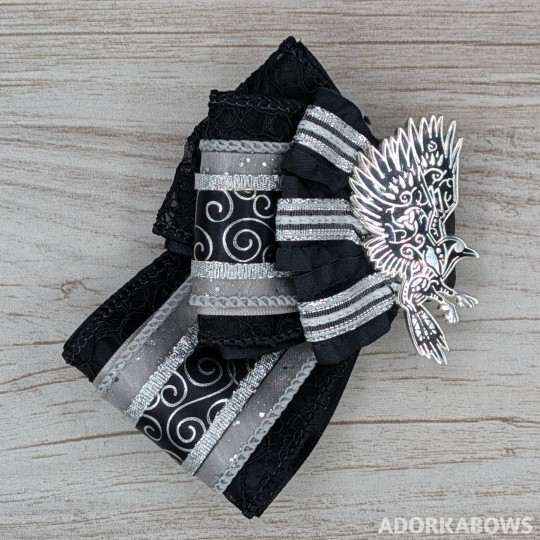
Odin's Raven
I was a fool. I should have made this a set.
Pin by NorfolkPins
Handsewn by me. :)
119 notes
·
View notes
Text

missed these biches. loki's pose is based on of @jookpubstock's ref pics
#loki#odin#norse gods#norse mythology#sketches#i was going to see how long i could go without drawing#and how that would make me feel#turns out i cant do that for very long bc it makes me feel so bad#haha...#put odin in a hood and my internal eomer went he walks here and there they say#as an old man#hooded and cloaked#on a loop#anyway im off to sand all the doors and all the window frames in our new house now bye
187 notes
·
View notes
Text
Merseburger Spells
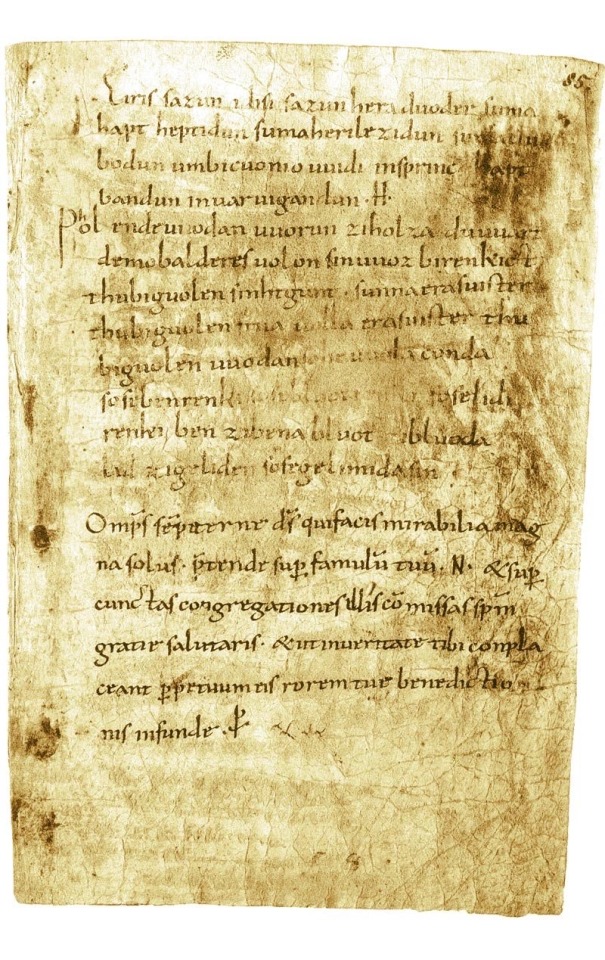
The Merseburg Spells or Incantations are two magic spells found in a Latin Sacramentarium and are written in Carolingian minuskel. The manuscript originates from the Abbey of Fulda, Germany and are dated around 800-900 AD, but only rediscovered in 1841.
The spells do not show any sign of Christian influence and are the only written proof of Germanic mythology in Old High German.
The first spell tells of prisoners of war which are freed by the Idisi. An unknown kind of god-like figures, possibly a Germanic version of Valkyries.
The second spell is a healing incantation. Wotan rides through the woods with Balder, until Balders horse named Phol gets hurt. Wotan, Friia (Freya), her sister Volla and Sinthgund and her sister Sunna sing to the horse; let your wounds be cured.
There are other version of the second spell known, but in different rhyming couplets and turned into a Christian motive.
English and Dutch speakers may identify most of the words without knowing the lyrics first.
Merseburger Domstiftbibliothek, codex 136, f85r
#germanic folklore#Germanic literature#old high German#fulda#merseburg#Merseburg spells#Odin#wodan#uuotan#norse mythology#germanic mythology#field archaeology#archaeology#linguistics#Viking mythology#balder#carolingian#Merovingian#Frisian#charlemagne#frankish
569 notes
·
View notes
Text
I really wish we knew more about Laufey in Norse myth
Because like
HOW DOES SHE FEEL ABOUT WHATS HAPPENING TO HER SON? WHAT WILL HAPPEN?
Like does she mourn him for what has been done? Scorn and pretend he doesnt exist because of what he will do?
WHAT DOES SHE FEEL?
The fact that Loki uses her name instead of Farbauti's interests the fuck out of me
#im gonna write a poem of her mourning him#norse myth#norse mythology#wolffox speaks#loki mythology#Laufey diety#never ever getting over the fact that there has been a fuck ton of shit we dont know about certain pantheons#and im not even a Norse pagan and im sad/angy about it#tho i am a celtic/greek pagan so technically its happened to my dieties too#because old Christians either rewrote it or destroyed it#no offence to the christians here i just have religious trauma#and the destruction of any information about mythos makes my mythology nerd heart die inside
70 notes
·
View notes
Text
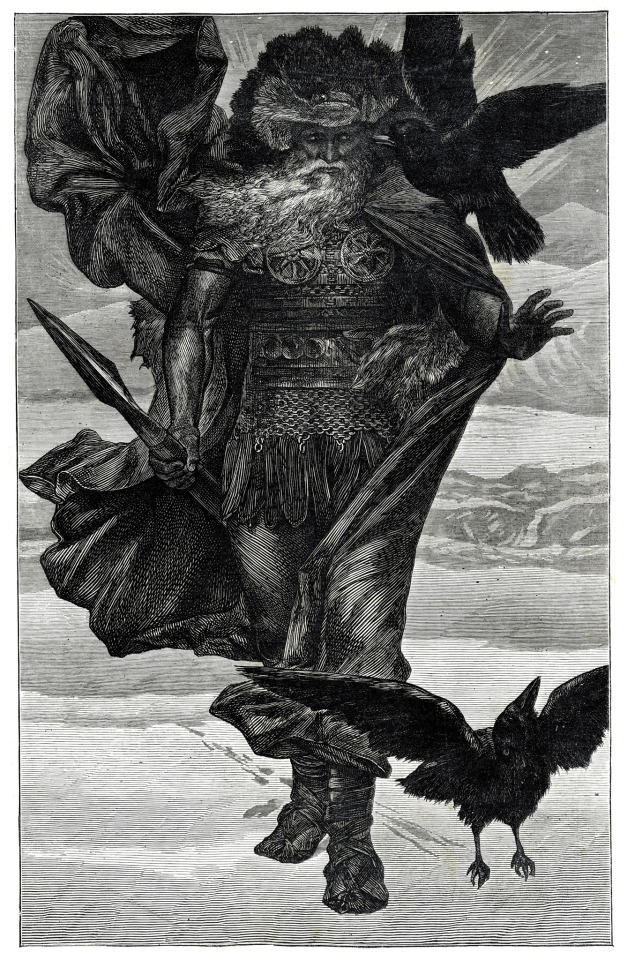
Odin, the Northern God of War by Valentine Cameron Prinsep
#odin#wotan#art#valentine cameron prinsep#norse mythology#old norse#norse#northern#europe#european#mythology#mythological#gods#war#northern europe#germanic#harper's weekly
631 notes
·
View notes
Text
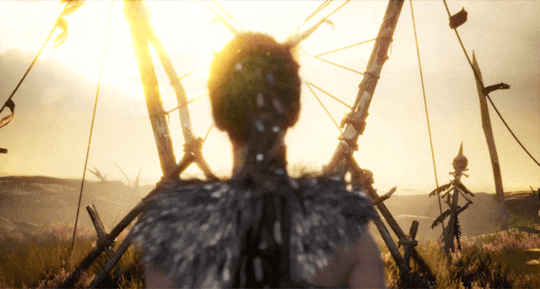
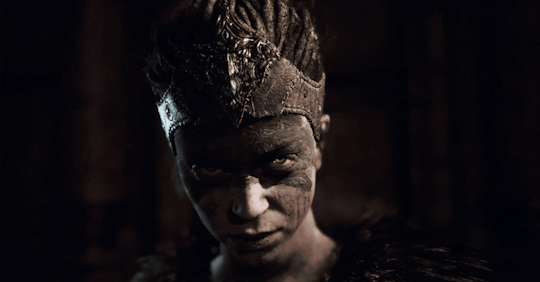
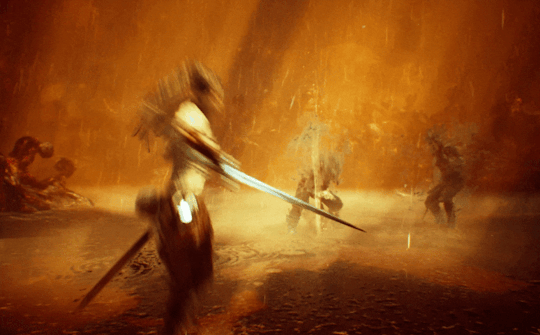
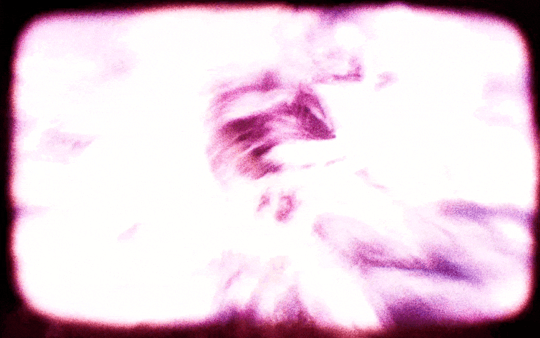
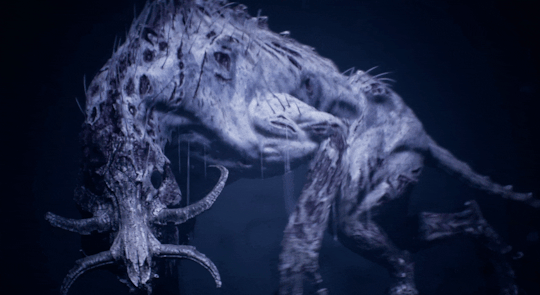

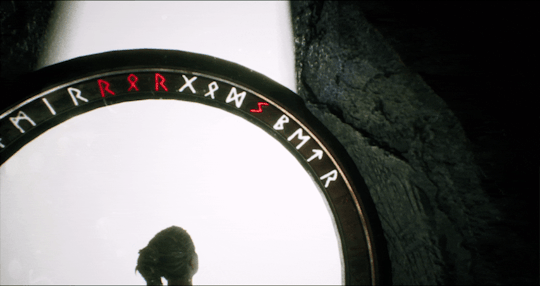

I know much wisdom, I see deep in the future, all the way to Ragnarök, a dark day for the gods…
#hellblade#senua's sacrifice#hellblade: senua's sacrifice#senua#game#video game#gaming#hel#helheim#hela#garmr#fenrir#hell#viking hell#viking#vikings#norse#norse mythology#norse lore#old norse#mythology#lore#folklore#ragnarok#Ragnarök
171 notes
·
View notes
Text

Happy Spongecake Day! 🍰
And happy 6th anniversary to this comic of Logi and Loki's annual eating rematch~
Logi is still undefeated.
(In the Tale of Útgarða-Loki, Loki is challenged to and defeated in an eating contest by the giant Logi, who turns out to be the embodiment of wildfire. Spongecake Day is a Lokean holiday that falls on September 4-5 that commemorates a time on Tumblr when someone got elitist backlash after posting a picture of a spongecake they offered to Loki ; and the Lokean community responded to the discourse with retorts, spongecake spam and a new tradition.)
#loki#sigyn#logi#norse mythology#heathenry#paganblr#norse pagan#norse paganism#heathen#witchblr#lokean#logyn#old blog#old art#loki deity#spongecake day
307 notes
·
View notes
Text

Gunnlöd
1886
Artist : Anders Zorn (1860-1920)
#gunnlod#gunnlöd#norse mythology#jötunn#old norse#1886#19th century#watercolour#watercolor#gold#hair#golden hair#anders zorn
75 notes
·
View notes
Text

An old piece of the Jötunn Surtr from a few years ago.
#traditional art#my art#illustration#art#norse mythology#norse gods#jotunn#surtr#old art#mythology and folklore#artists on tumblr#muspelheim#watercolours
38 notes
·
View notes
Text

Rescued from Pinterest.
#myth loki#loki#loki laufeyson#sleipnir's mom#svaðilfarir#norse mythology#scandinavian mythology#old norse#paganism#vikings#viking#viking mythology#mythology and folklore#asatru#sleipnir
54 notes
·
View notes